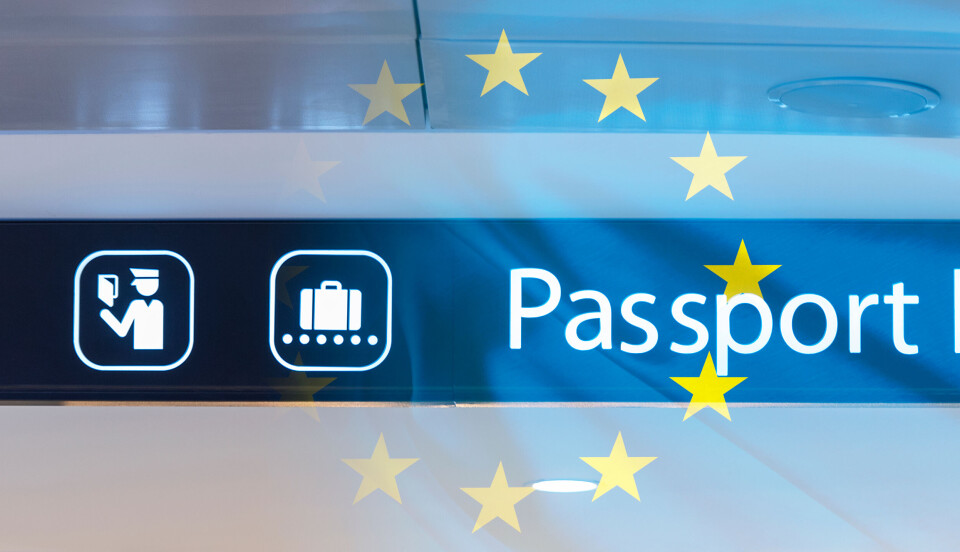-
EES: Why am I fingerprinted every time at Nice airport?
Phase-in period is continuing and technical improvements are still awaited
-
EES: Delay for British and American residents to use French passport e-gates
Phased rollout of checks set to reach full operation by April, with 'partial suspensions' possible over summer
-
Solutions ‘coming early in 2026’ to EES issues at French airports
European Commission denies claims of three-hour ‘peak time’ queues
France residents: If I enter via another country is passport stamped?
Passports are not stamped at internal EU borders but the issue can arise when entering through an external Schengen border

Reader question: I am flying to Belgium from the UK before going to France where I live. Will my passport be stamped? Does it matter?
The first thing to remember is that those who have any kind of residency permit to live in France do not have complete freedom of movement within the Schengen area.
Freedom of movement only applies to EU citizens whereas residents still have to abide by certain rules.
One of these rules is that, outside of the country they hold a residency permit for, they can only spend 90 out of 180 days in other Schengen area countries.
However, the EU states it is up to residency permit holders themselves to regulate the time they spend in the Schengen area outside of the country they live in using the 90/180 day rule and this is not monitored using passport stamps as is the case for non-EU visitors to the area.
Furthermore, border stamps are never given at internal EU borders so the stamping issue is mostly likely to come up if entering through an external Schengen border which is not part of the country in which you have residency.
Stamping is ‘pointless’ for residency card holders
The general advice of the European Commission, as previously told to The Connexion, is that stamping of passports of people who hold residency permits for an EU state is pointless, as the aim of stamping is to monitor any overstaying by visitors subject to the rule of 90/180-days.
In the case of Britons holding Brexit Withdrawal Agreement residency cards, it released guidelines that this should not be done, though an EU official told us that individual countries could stamp people’s passports if there were national laws in place permitting this.
The French border police and Interior Ministry have accepted this principle of not stamping and, after teething problems, most WA cardholders are not reporting their passports being stamped in France; this is likely to apply in many other EU countries too.
Official advice from the British government is therefore to “proactively show your residency permit” when crossing into the Schengen area to prevent a stamp being added to your passport.
Having said this, the French police aux frontières previously told The Connexion they do routinely stamp passports of foreign people holding visas and residency cards for France, apart from Britons with Brexit Withdrawal Agreement cards.
Stamping does not affect your life in France
If your passport does get stamped, it will thankfully change nothing about your rights in the country in which you live.
“The stamp is considered null and void when you can show evidence of lawful residence,” in a Schengen area country, says the British government.
Therefore as long as you can show you have a right to live in France through a residency permit, border officials should ignore the stamp in your passport.
A 2022 document published by the EU also confirms this.
It states that “there is little practical use in stamping passports of Withdrawal Agreement beneficiaries… beneficiaries of the Withdrawal Agreement in a Schengen member state are not required to leave the Schengen area [after a set period of time] as they legally reside in one of the Schengen member states.”
“The usual limitation of a stay of 90 days in a 180 days’ period in the Schengen area does not apply to them, irrespective of whether their passport has been stamped or not,” it adds.
Read more: Does a French residency card allow you free movement in the EU?
Does it affect your ability to visit other EU countries?
One problem that may arise, however, is the passport stamp causing issues if you enter the Schengen area again through a different country where you do not hold residency, after 90 days (but before 180 days) of the original stamp being issued.
For example, if you arrive in Belgium on September 1 and your passport is stamped, then go to France, leave in November back to the UK, and then enter the Schengen area again through Spain on December 15, the passport stamp from Belgium could cause issues.
This is because you would not have an exit stamp corresponding to you leaving the bloc, and guards could assume you had already used your 90-day maximum allowance in the bloc.
However, because you possess a residency permit for a Schengen area country they should allow you to pass through to go to your home in France despite the passport stamp.
Finally it is worth noting that when the European Entry/Exit System finally comes into force – now expected to be in about a year’s time – these complications should come to an end, as it is intended that passport stamping will be phased out together with this.
Read also
What are moves to change 90-day visitor rule in France for Britons?
Why did it cost €239 to renew my British passport from France?
























